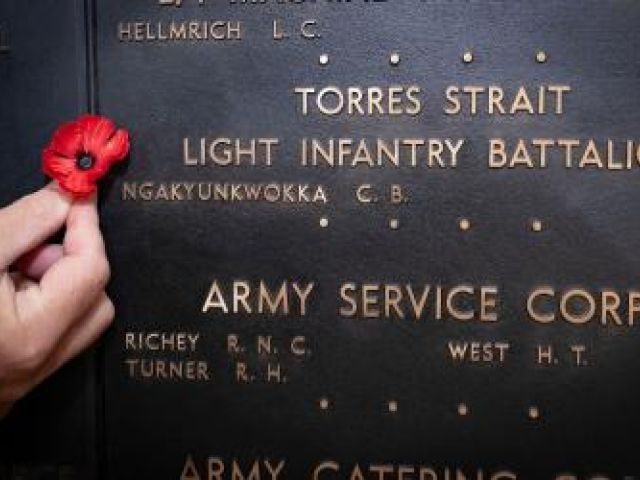
Naming Private Ngakyunkwokka
The Roll of Honour sits at the heart of the Australian War Memorial.
From AWM

The Roll of Honour sits at the heart of the Australian War Memorial.
From AWM
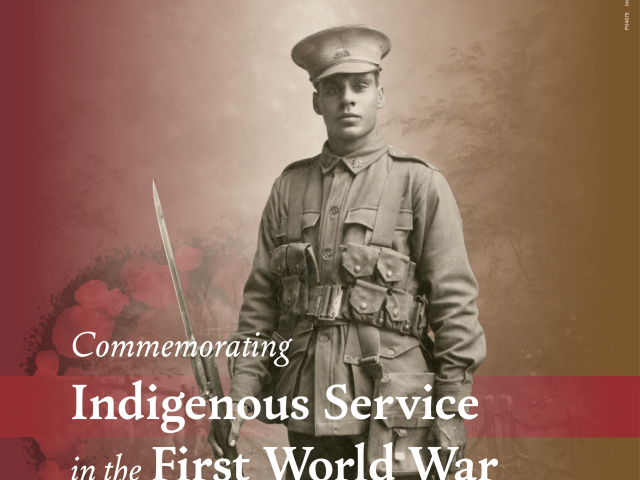
This week is NAIDOC Week – an opportunity to celebrate and recognise the history, culture and achievements of Aboriginal and Torres Strait Islander peoples.
From DVA
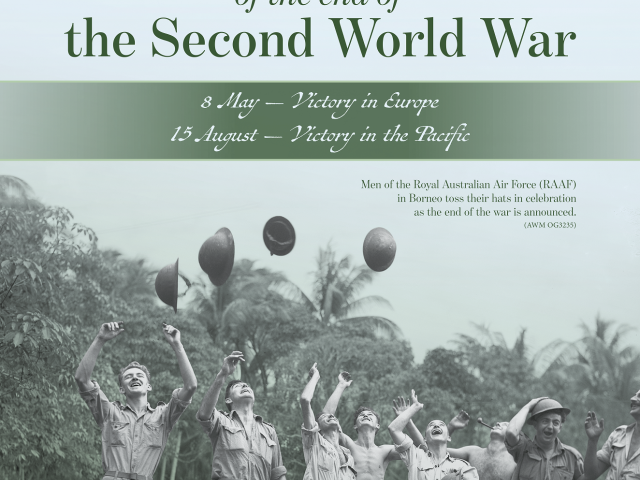
Each year, on 15 August, we mark Victory in the Pacific (VP) Day, the anniversary of the end of the Second World War.
From DVA
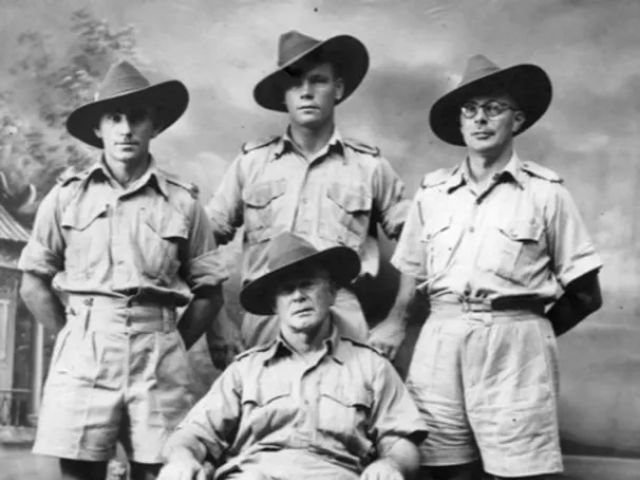
THE sinking of the Montevideo Maru, a Japanese transport ship, on this day, 83 years ago on July 1, 1942.
From Sentinel times
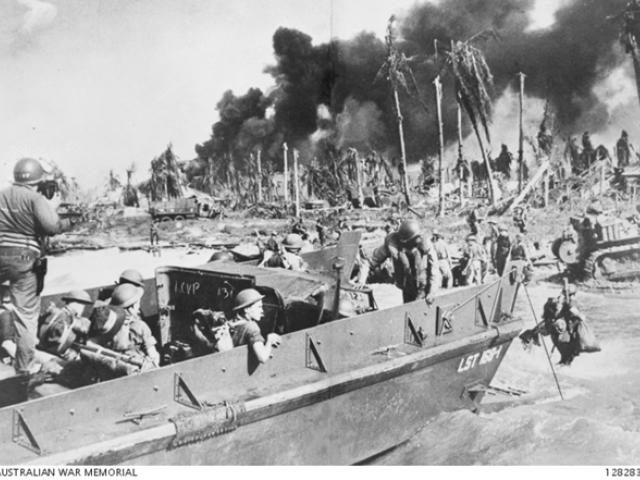
On this day in 1945, thousands of Australian troops landed on the beaches around the town of Balikpapan in south-east Borneo
From DVA
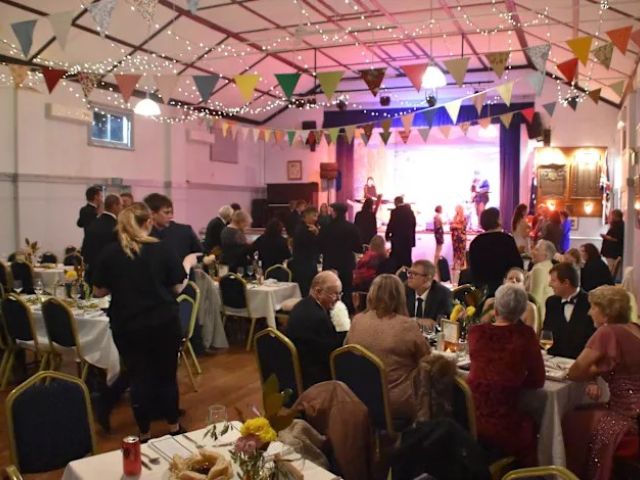
The Woodstock Soldier's Memorial Hall celebrated its centenary with a black tie ball this past weekend, marking both 100 years and the significant effort that has gone in to keeping the Memorial Hall open.
From Grenfell Record

The Australian War Memorial has scooped the architecture industry awards across two gala ceremonies that have acknowledged amazing interior design, innovative heritage and public space development.
From AWM media release
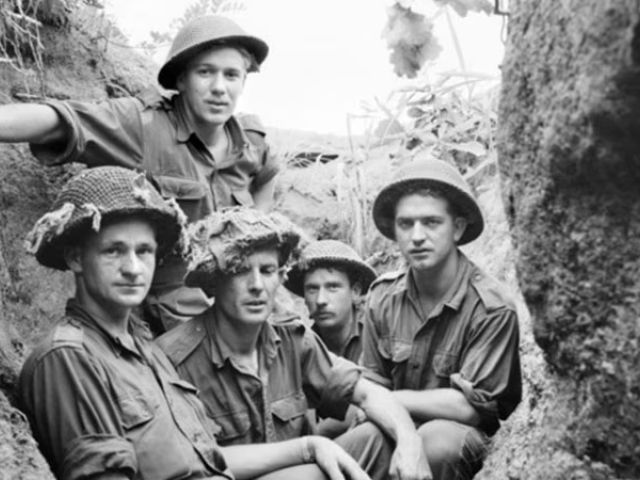
Less than five years after WWII, on June 25, 1950, North Korean forces invaded South Korea, starting the Korean War.
From ABC news
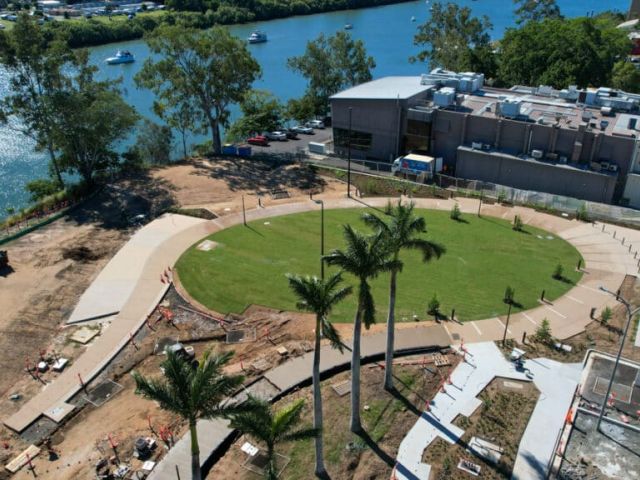
Concrete seating and memorial elements will soon be lifted into place at Anzac Park as part of Stage 1 of Bundaberg Regional Council’s redevelopment project.
From Bundaberg council news
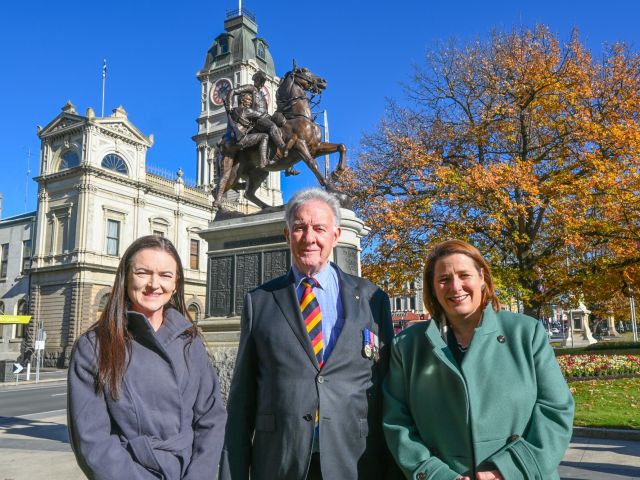
A celebration has been held to mark the return of an icon in the Sturt Street Gardens boulevard.
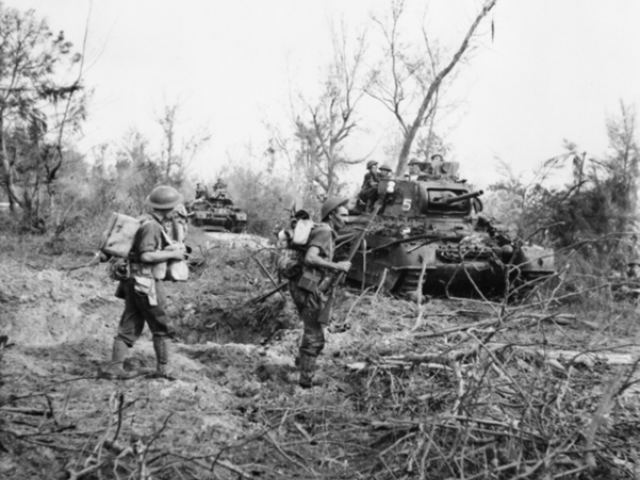
On this day in 1945, soldiers from the Australian Imperial Force’s 24th Infantry Brigade, 9th Division landed on the small island of Labuan in Brunei Bay, northwest Borneo. The assault was part of a broader offensive against the Japanese in Borneo known as Operation Oboe.
From DVA
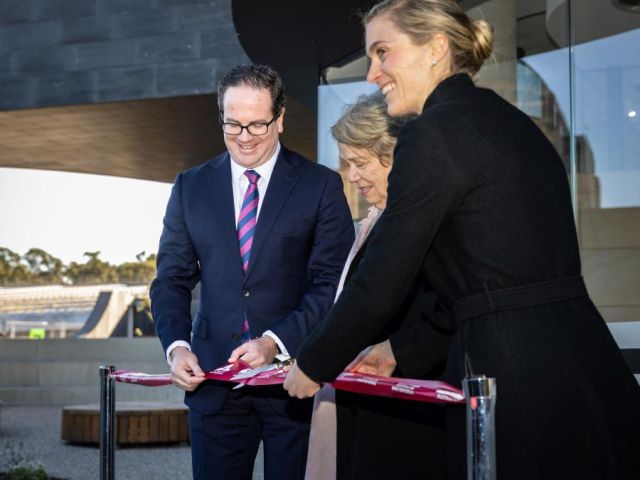
The granddaughter of Charles Bean—Australia’s first official war correspondent and founder of the Australian War Memorial—has led the official opening of the new Charles Bean Research Centre in Canberra on 5 June.
Australian War Memorial Director, Matt Anderson PSM, and the Minister for Veterans' Affairs and Defence Personnel, Matt Keogh, also participated in the new research centre's opening to the public.
From AWM
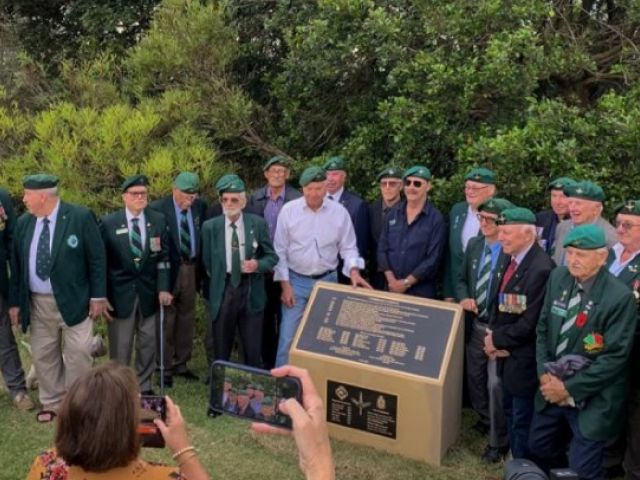
A permanent memorial to the leaders of 1 Commando Company has been dedicated at the site of the unit’s original barracks in Georges Heights, Sydney.
From Defence
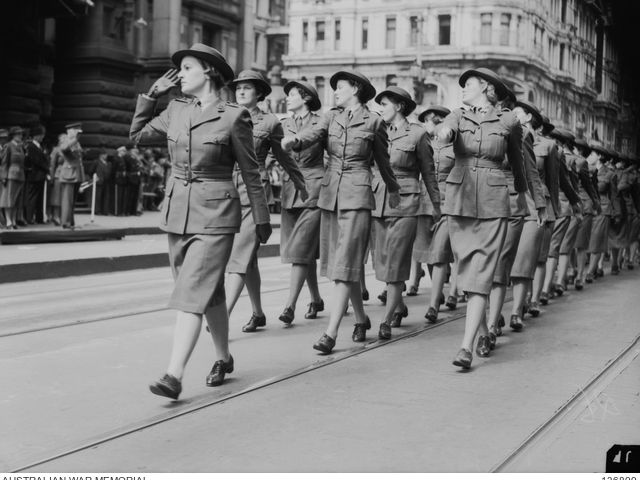
The Australian Women’s Army Service (AWAS) was formed in 1941 by Sir Percy Spender, who believed women were an underutilised resource in Australia’s war effort. The formation of the AWAS relieved men from certain military duties to serve in fighting units.
From Australian War Memorial
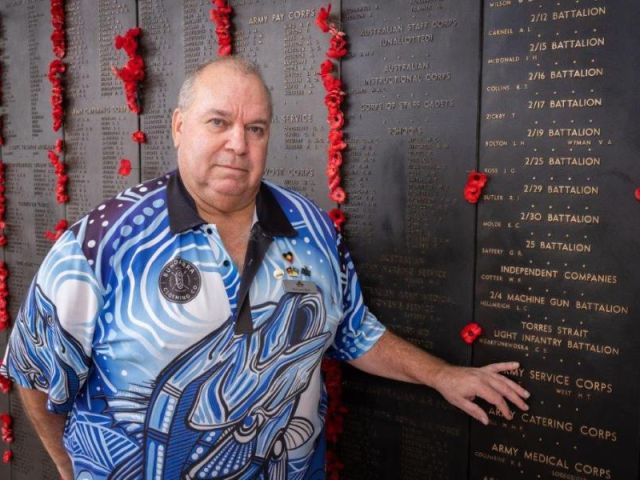
The Australian War Memorial in Canberra will commemorate the service and sacrifice of Aurukun resident Private Charlie Bob Ngakyunkwokka at the Last Post Ceremony on National Reconciliation Day, Tuesday 27 May 2025.
From Australian War Memorial
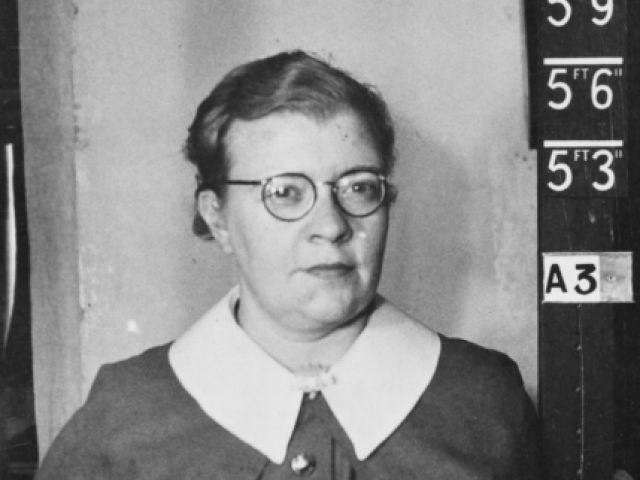
In November 1940, Irene Melville Drummond, a nurse from Broken Hill, NSW, enlisted in the Australian Army Nursing Service (AANS) to provide care to wounded and sick soldiers amid the turmoil of the Second World War.
From Australian War Memorial
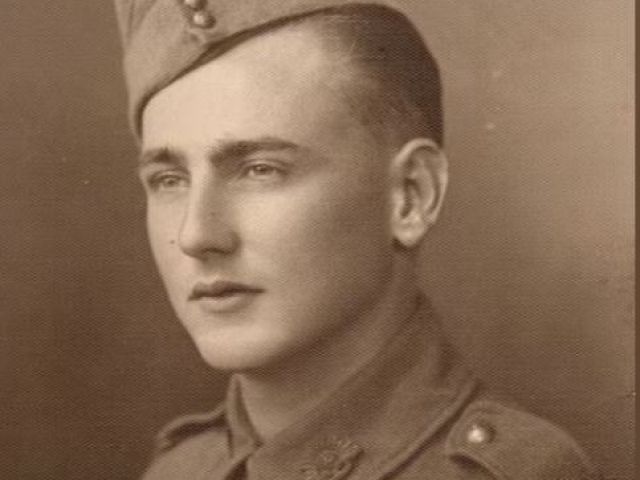
Western Australia has farewelled its final World War II prisoner of war, Arthur Leggett, with a state funeral at St George's Cathedral.
Mr Leggett died last month at the age of 106.
He has been remembered as an Australian hero who radiated inner strength and stoicism.
From ABC News
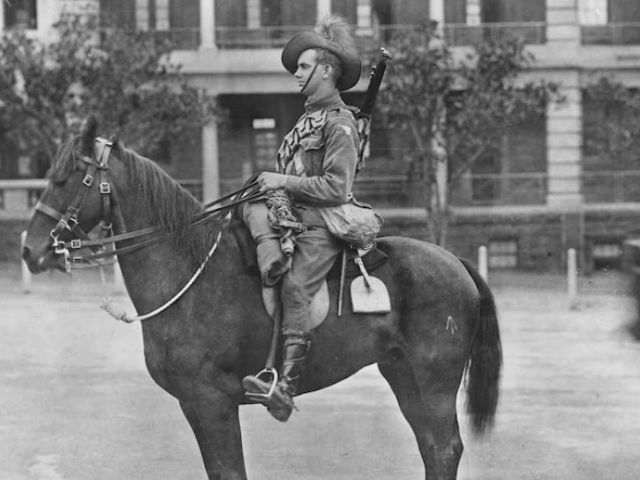
Emu feathers on a slouch hat are a powerful symbol of the Australian Light Horse, and two army veterans are combining their skills so the tradition lives on.
From ABC News
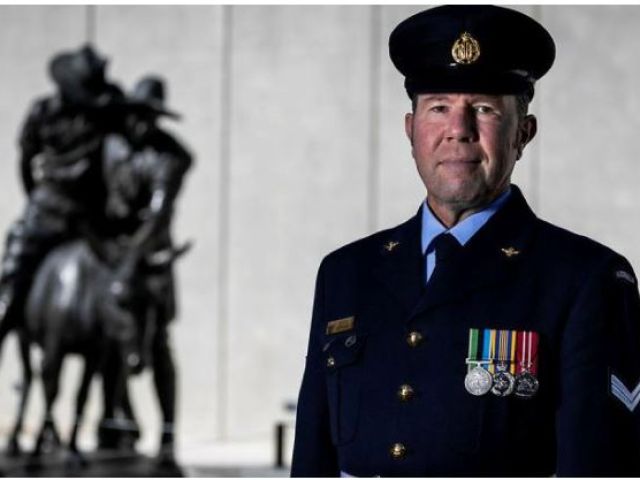
This Anzac Day, Corporal Kevin Jeffries will be standing proud at Lone Pine in Turkiye as the Commander of Australia’s Federation Guard catafalque party.
Corporal Jeffries, an Air Force avionics technician, has worked hard to make the short-list for the trip and is relieved to be going.
From Australian Government Defence
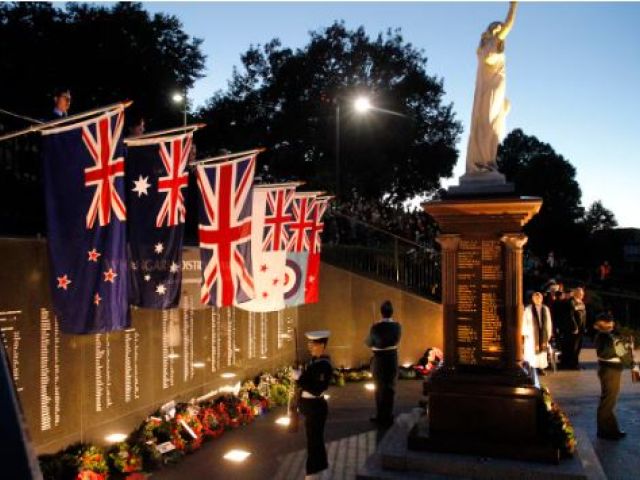
Anzac Day, what does it mean for you?
For me, it is one of the most important days of remembrance we could have in our New Zealand history.
From NZ Northern Advocate
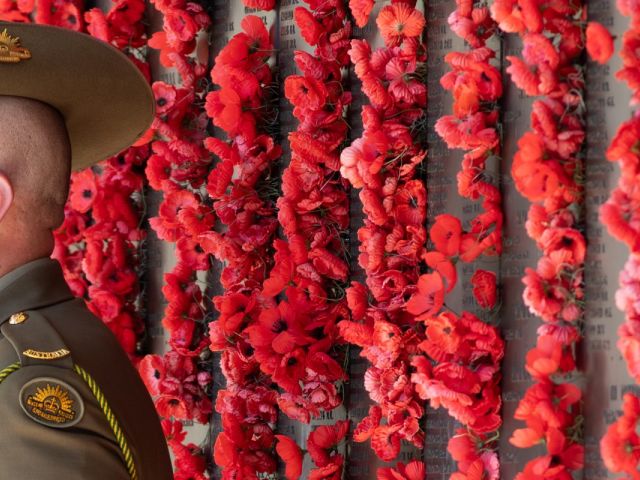
On 25 April 1915, 110 years ago, Australia forged its own history and identity when soldiers of the Australian and New Zealand Army Corps landed on the shores of Turkey (then part of the Ottoman Empire) and began the Gallipoli campaign.
From Region Canberra
The Museum of Chinese Australian History in Melbourne is holding a special event to honour the Chinese Australians who served during the First and Second World Wars.
From Department of Veterans' Affairs
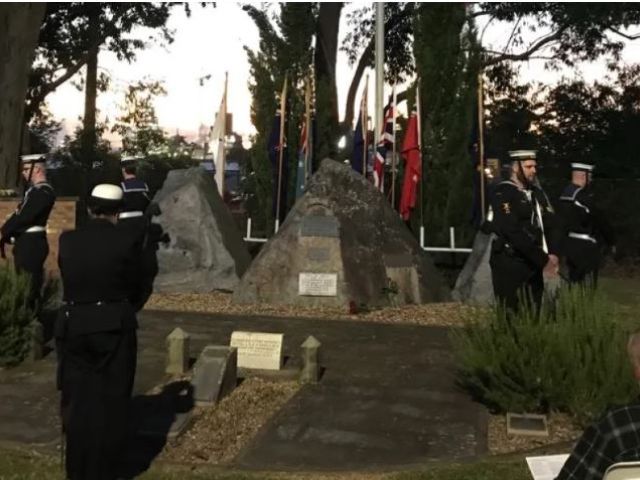
There will be several temporary road closures on Friday 25 April as the community comes together to mark Anzac Day across the Shoalhaven.
From 2ST
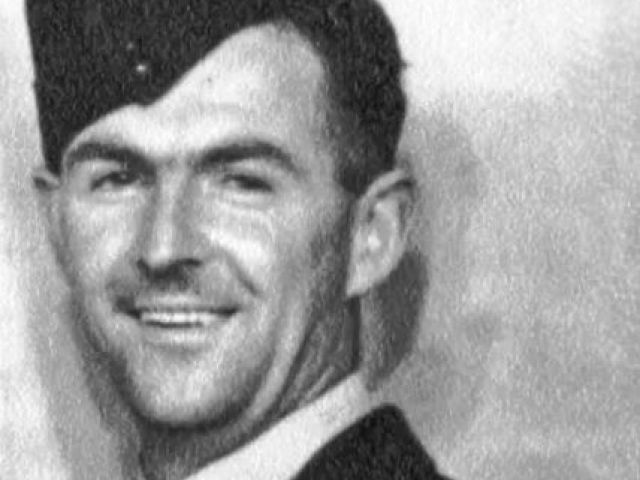
SAMUEL Donald Whiteside known as Donald or Don to his friends left the family farm in Korumburra like many others during WWII never to return.
On Saturday, March 29 the Australian War Memorial in Canberra will commemorate the service and sacrifice of Pilot Officer Whiteside as part of the daily Last Post Ceremony.
From Sentinel-Times